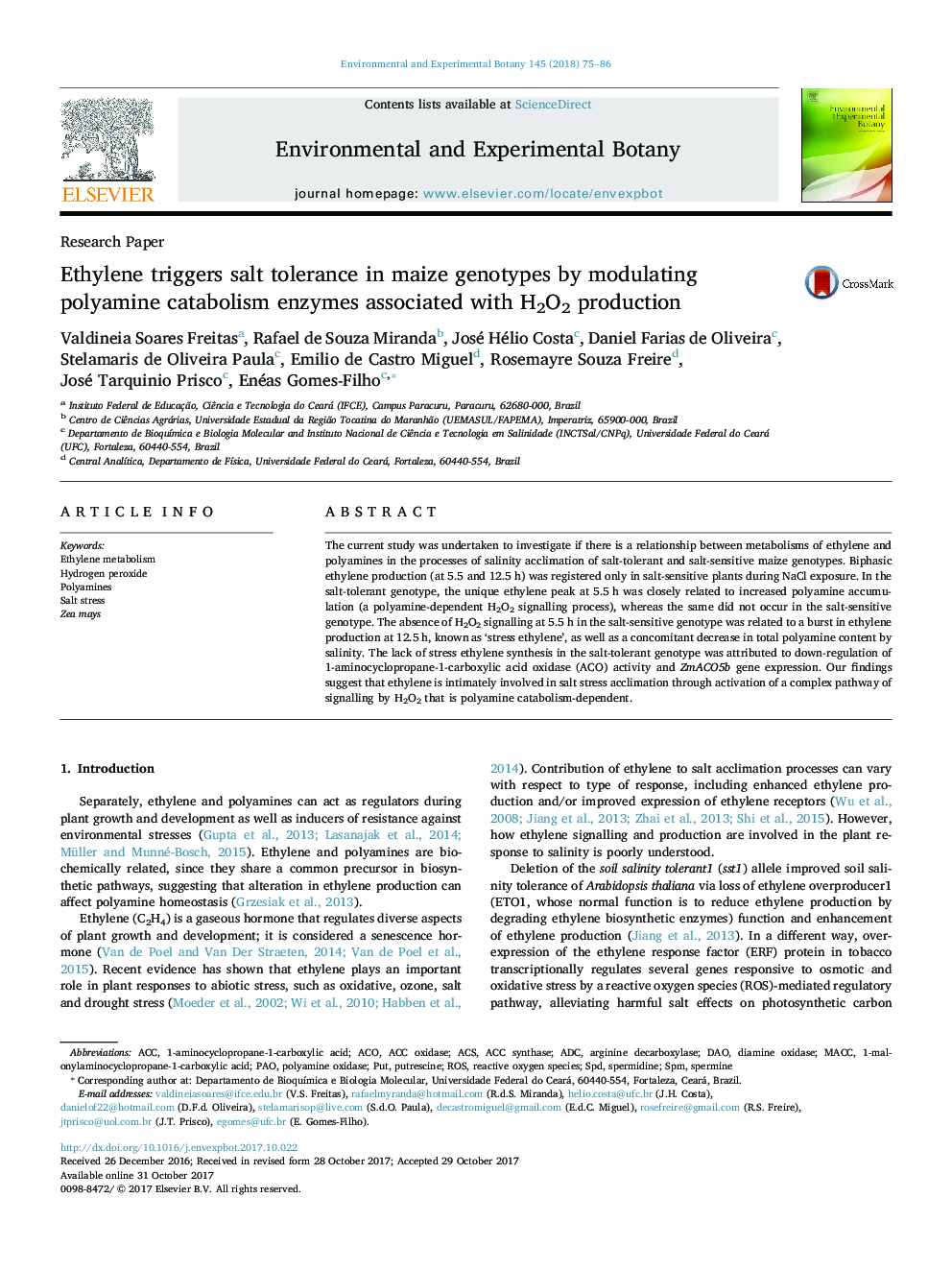| Article ID | Journal | Published Year | Pages | File Type |
|---|---|---|---|---|
| 8887152 | Environmental and Experimental Botany | 2018 | 12 Pages |
Abstract
The current study was undertaken to investigate if there is a relationship between metabolisms of ethylene and polyamines in the processes of salinity acclimation of salt-tolerant and salt-sensitive maize genotypes. Biphasic ethylene production (at 5.5 and 12.5Â h) was registered only in salt-sensitive plants during NaCl exposure. In the salt-tolerant genotype, the unique ethylene peak at 5.5Â h was closely related to increased polyamine accumulation (a polyamine-dependent H2O2 signalling process), whereas the same did not occur in the salt-sensitive genotype. The absence of H2O2 signalling at 5.5Â h in the salt-sensitive genotype was related to a burst in ethylene production at 12.5Â h, known as 'stress ethylene', as well as a concomitant decrease in total polyamine content by salinity. The lack of stress ethylene synthesis in the salt-tolerant genotype was attributed to down-regulation of 1-aminocyclopropane-1-carboxylic acid oxidase (ACO) activity and ZmACO5b gene expression. Our findings suggest that ethylene is intimately involved in salt stress acclimation through activation of a complex pathway of signalling by H2O2 that is polyamine catabolism-dependent.
Keywords
Related Topics
Life Sciences
Agricultural and Biological Sciences
Ecology, Evolution, Behavior and Systematics
Authors
Valdineia Soares Freitas, Rafael de Souza Miranda, José Hélio Costa, Daniel Farias de Oliveira, Stelamaris de Oliveira Paula, Emilio de Castro Miguel, Rosemayre Souza Freire, José Tarquinio Prisco, Enéas Gomes-Filho,
